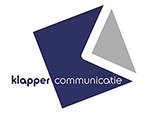“Teveel zitten is een bedreiging voor de gezondheid”
Onderzoek uit 2014 van de Eurobarometer laat zien dat Nederlanders en Denen meer dan 8,5 per dag zitten. De Portugezen, Maltezen, Slovenen, Roemenen en Hongaren zitten het minst, zo’n 2,5 uur per dag. De cijfers van de Nederlandse Leefstijlmonitor van het RIVM (201%) lie
t zien dat jongeren zelfs meer dan 10 uur per dag zitten. Huiswerk maken, gamen en tabletgebruik dragen bij aan deze leefstijl. Inmiddels is aangetoond dat teveel zitten obesitas 2 en een kortere levensduur kan veroorzaken. Gezondheidwetenschappers adviseren daarom de leefstijl te veranderen, door meer trappen te lopen, de fiets te nemen naar school of werk, collega’s niet meer per mail of whatapp te benaderen maar gewoon even langs te lopen of een alarm op je mobiel in te stellen voor het maken van een wandelinkje en tijdens mobiel bellen. Meer door het huis lopen draagt ook bij aan een gezonde levenstijl. Een inspirerend idee voor een gameshow of reality serie?
Niet alleen te veel zitten is een bedreiging voor onze gezondheid, maar ook te lang werken in dezelfde omgeving draagt bij aan een slechte gezondheid. Daarom experimenteren verschillende organisaties met het wisselen van werkplek. Het Nederlandse Regiomatch startte onlangs een experiment met het wisselen van werkplek om zo de productiviteit en creativiteit van werknemers te verhogen
“Werknemers gezonder wanneer zij van werkplek wisselen”
De meeste werkgevers denken dat het wisselen van werkplek slecht is voor de werknemersloyaliteit, maar het tegendeel is vaak waar. Zo wisselde het Amsterdamse vervoersbedrijf GVB beveiligingspersoneel met het VUMC. Het bleek dat het personeel daardoor gemotiveerder, gezonder en productiever is. Eerdere Tv-programma’s zoals Extreme job swap (Zodiak) en Beroepen zonder grenzen (Professions without frontiers, Kanaal Eén, België) richten zich vooral op de aard van de gewisselde beroepen en niet op de productiviteit en de gezondheid van de werknemers. Dus een andere invalshoek voor een nieuw swap Tv-programma?
Een andere manier om de gezondheid van werknemers te veranderen is het verbeteren van de voedselkwaliteit. De Deense overheid probeert dit te doen met de ondersteuning van de campagne voor “Økologiplan” met €54 miljoen.
“Organisch voedsel wordt steeds populairder”
Deze campagne heeft als doel om het biologisch akkerareaal te verdubbelen in 2020. Het Deense bedrijf Arla was enthousiast over het plan. Dit bedrijf verkocht immers in 2015 al een record hoeveelheid organische producten aan de Deense publieke sector. Wellicht een goed idee voor serieuze documentaire?
Charles Vaneker
Senior Research and Media consultant
